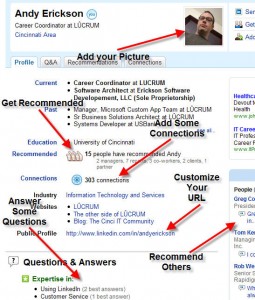Before the economy turned on its head in 2008, I received what seemed to be a pitch a week from a new company looking to revolutionize the standard resume.
If you worked in HR, you might have heard about these sorts of things, too. Turning your resume into a PowerPoint presentation, website, or video seemed to be the most popular ideas at the time.
Not much about those ideas stuck around. All of them took longer to review than regular resumes and often provided less helpful information. Still, you have to wonder why resumes continue to stick around. I haven’t met many recruiters that think they truly offer the value they could.
So why don’t we do more about it?
“We” don’t have the time
The people most impacted by the poor resume (other than the job seeker) are the HR and recruiting folks who sort through the hundreds they get. So what do they do about it?
Some try to cope with the flux through varieties of technology (mostly applicant tracking systems) or they try to make applicants jump through some creative hoops so they have to deal with less quantity while still ensuring decent quality. Whether this works the way they intend is a subjective view, but my take on it is that it is a tough process to manage in this way.
Others try to bypass the application process altogether by simply never posting jobs, using their network to connect with people, and filling the job that way. That’s tough too and not realistic for some companies.
The bigger possibilities out there just aren’t in the purview of your average chief HR or recruiting person. The resume is ubiquitous. Anyone can put it together, they are generally understood, and they are generally the standard for helping a stranger understand what you’ve done in your career with just a minute or so reading.
Looking to LinkedIn, other networks
One of the major changes that actually happened during the recession was the rise and growth of LinkedIn.

LinkedIn has a lot of things going for it. For one, the information there is public so other people, including co-workers, can see what they are putting down as their accomplishments and skills. While lying on a resume has been a standard practice (and you’re always taught to take a grain of salt with anything written there), I would certainly feel less comfortable about putting that down on my public profile where a former boss or co-worker who knows better could find it and call me out on it.
Another advantage is that it is searchable and indexable by Google. That means when people search for you on LinkedIn (or for your skills), they can find you. And I can always count on LinkedIn being one of the top results for my name on Google so people who are interested in me will be able to find a professional profile for me.
Other networks may make the claim that they are better than LinkedIn. BranchOut and BeKnown both utilize Facebook to drive their networks. That has the potential to reach millions more than LinkedIn can by itself. And assuming they get those numbers and are able to connect recruiting and HR to potential matches, that could be another possibility.
Unfortunately, LinkedIn and these other networks aren’t the answer, at least not yet. They’re not anywhere close to as ubiquitous as the humble resume (and to be fair, the resume had a slight head start). The lack of blue-collared professionals on LinkedIn is a major issue. Also, the amount of information that is missing from profiles is, at times, substantial.
I look at my own LinkedIn profile and I have very little there, especially for my current job. And the appeal to LinkedIn and these other networks for the recruiters and HR folks that use it is that there is a perceived higher quality there because not everyone is looking for a job and information is more likely to be up to date. If they become resume depositories rather than networking sites, that value goes down.
So what is next?
When you look at things that are most widely used by the masses for communicating, you see a few commonalities. For example, almost everyone in the U.S. has a phone, email address, and web access. And when you think about it, none of those require that you use a specific network for it to work.
My cell phone can be on Sprint or Metro PCS and I can still make calls to anyone else with a phone. If I have an email address on Gmail or on my own email server, I can still send emails to anyone with an email address. And I can access the web through any number of means and still be connected.
That’s the reason why the resume has staying power. It doesn’t require that you use a specific network or website. Almost everyone who has an open job accepts a resume and can use it to help decide who to bring in to talk further. And a resume is fairly easy to put together and works for anyone who has had a job, regardless of their level.
Whatever is next won’t deviate from that formula and anyone thinking seriously about the future of resumes has to realize that before they pitch the “next resume” to me again for the 100th time.
If your version of the next resume requires an ATS, or requires people to use your network, or is complicated, or doesn’t work for all professionals, you don’t have the next resume. You have something that may supplement the resume nicely or something that may or may not be accepted in lieu of a resume. But that’s not what’s next.